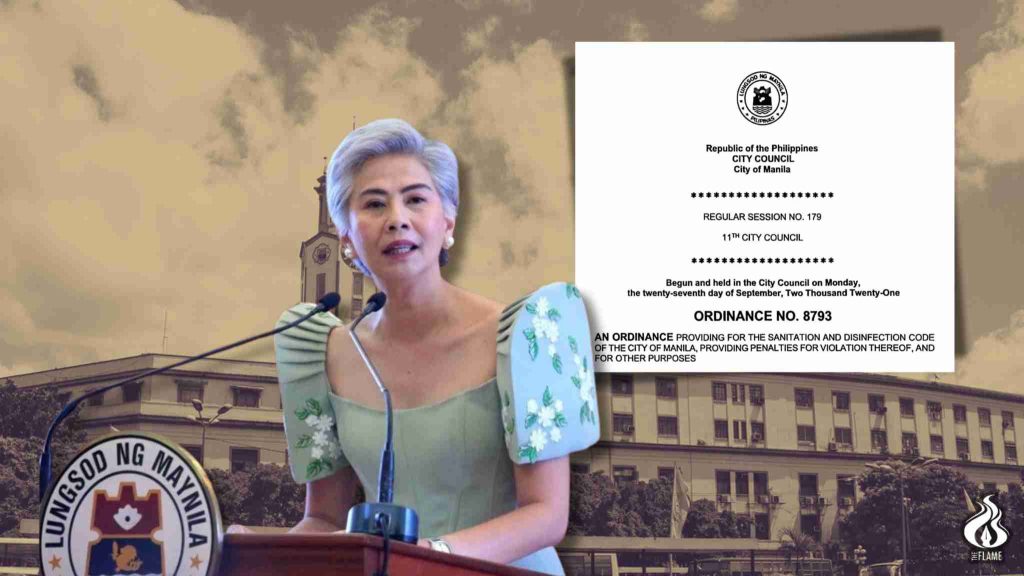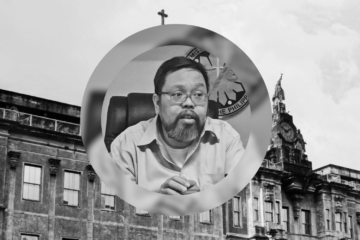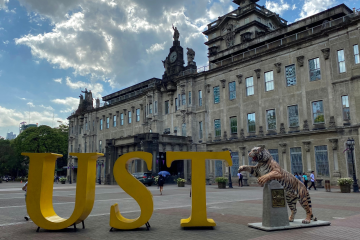
FOLLOWING A slew of criticism among labor groups claiming that the health permit requirement is “exploitative” and “discriminatory,” Manila Mayor Honey Lacuna has claimed that their grievances may have stemmed from the UST administration’s failure to relay the policy properly to its employees.
In her first public statement on the controversial Ordinance 8793 or the Sanitation and Disinfection Code of Manila, Lacuna blamed the compliance issues on a supposed “misunderstanding” between University officials and personnel.
“I think ‘yung pagkaka-explain lang sa kanila ng administration ng UST, doon po nagkaroon ng problema. Misunderstanding. Siguro kung hindi po nagkaroon ng gano’n, maayos naman sanang naipatupad,” Lacuna said in a press conference in Manila last Aug. 27.
(I think it was from the way the UST administration explained things to them that the problem arose. Misunderstanding. Maybe if that hadn’t happened, implementation would have gone smoothly.)
“The administration is the only one communicating with us. We have not been able to talk to the [labor] groups who are complaining to hopefully clarify things with them,” she added.
Concerns on the requirement first surfaced after the Office of the Vice Rector for Finance issued a memorandum in April mandating all teaching and non-teaching staff to secure a health permit from the Manila city government every year.
Employees must spend a total of P625 to undergo physical examinations, including the submission of stool and urine samples, to secure the permit, which can only be obtained from the Manila Health Department led by Lacuna’s husband Arnold “Poks” Pangan.
Just between the UST admin and workers?
However, a document containing instructions on how to secure a permit suggests that the Manila city government was involved in the efforts to explain the policy to UST workers.
A frequently asked questions document released in July reiterated the provisions stipulated in the ordinance. It also contained an item stating that those who failed to comply with the policy within the July 31 deadline would lose access to the University’s official online service. The document was stamped not just by UST, but also the Lungsod ng Maynila and Manila Health Department.
In the same press conference, Vice Mayor Yul Servo Nieto claimed that criticisms against the ordinance only came from UST employees.
“I’m just shocked that the issue has only been brought up now and why UST is the only one complaining about the ordinance when it isn’t the only school [required to obtain a permit], while all the other schools are complying,” Nieto said.
Contrary to the vice mayor’s claim, several groups from other Manila-based schools have expressed their opposition to the ordinance. They also called for the review of its “repetitive” provisions that supposedly entailed an unequal distribution of the policy.
In a letter addressed to Lacuna on July 31, the Council of Teachers and Staff of Colleges and Universities of the Philippines (CoTeSCUP) argued that not all private schools in the city require their personnel to secure a health permit, while employees from other institutions have not yet heard of the policy.
CoTeSCUP is a labor coalition composed of teaching personnel working in Manila-based private schools, namely the University of Santo Tomas Faculty Union, the Faculty Association of MAPUA Institute of Technology, the San Beda College Union, the Lyceum of the Philippines University Faculty Association, the Far Eastern University Faculty Association, Inc., the Centro Escolar University Faculty and Allied Workers Union, the St. Paul University-Manila Faculty Union and the De La Salle University Employee Association Union.
“We have noted discrepancies where some private schools in Manila do not require health permits for their employees, creating an uneven application of the ordinance,” the letter, which was signed by officers and board members of the CoTeSCUP, read.
On Aug. 5, Pangan released a memorandum stating that all Manila schools are required to secure health and sanitary permits from the Manila Health Department.
‘Senseless’ provisions
Ugnayan ng mga Nagkakaisang Manggagawa ng University of Santo Tomas Hospital (UNM-USTH) President Donell Siazon disputed Lacuna’s claim, saying the concerns of employees did not stem from miscommunication but from the “senseless” provisions of the city ordinance.
“The observations on the sanitation are not a misunderstanding. Charging workers over P600 is also not a miscommunication. The root of the issue is an ordinance that makes no sense,” Siazon told The Flame.
“Is it hard for a public servant to understand the legitimate issues that affect the workers? Let us ask her, what if she offers the physical examinations for free? Of course, she would not allow it. Why? Lacuna is diverting the issue. She must listen to the workers,” he added.
Arts and Letters Faculty Association president Assoc. Prof. Rene Tadle shared the view, saying employees are not opposed to the health permit itself but to the ordinance’s “unnecessary burden.”
“To be clear, we’re not against health permits. Our point is that the ordinance should respect existing laws and the constitutional rights of workers in educational institutions without imposing additional and unnecessary burdens on them,” Tadle said.
“We urge Vice-Mayor Yul Servo Nieto to communicate with Mayor Honey Lacuna directly—it seems they’ve been out of sync lately… There’s something wrong not only with the explanation but with the ordinance itself. So who are accountable now?” he added.
Siazon said the University’s labor coalition aims to organize another rally to call for the revocation of the ordinance.
“We will organize another action to make Mayor Lacuna’s administration realize that the call to abolish the ordinance is justified. It seems the Mayor of Manila is deaf or simply does not understand the grievances of the workers,” he said. F — Veancy Palad and Ma. Alyanna Selda




[…] READ: UST admin failed to explain health permit policy properly, Manila mayor claims […]